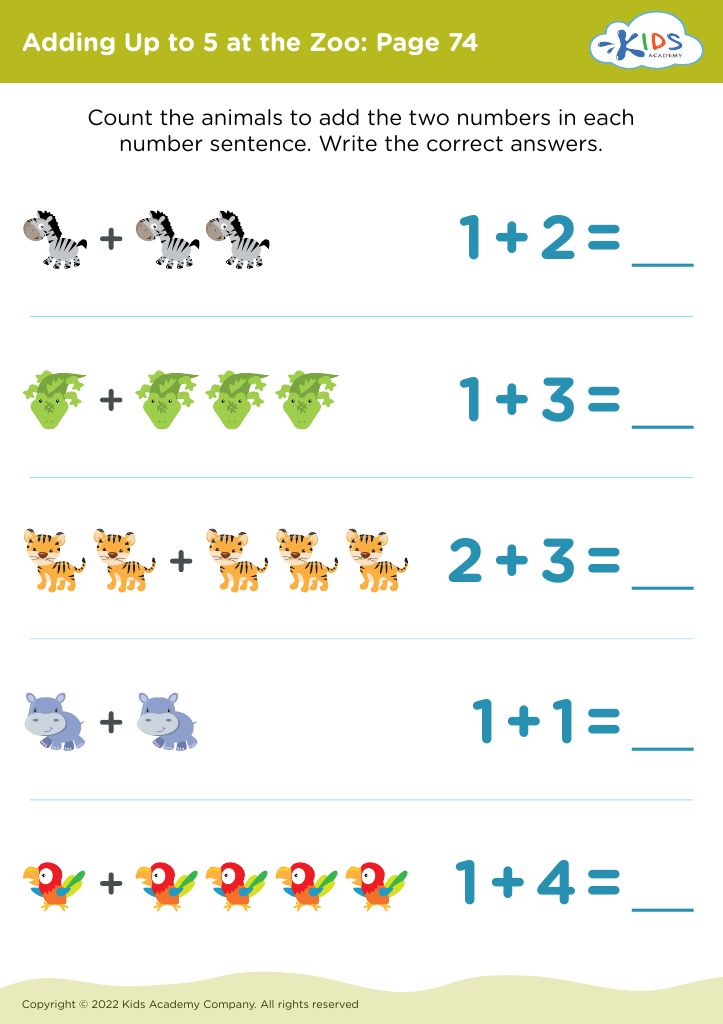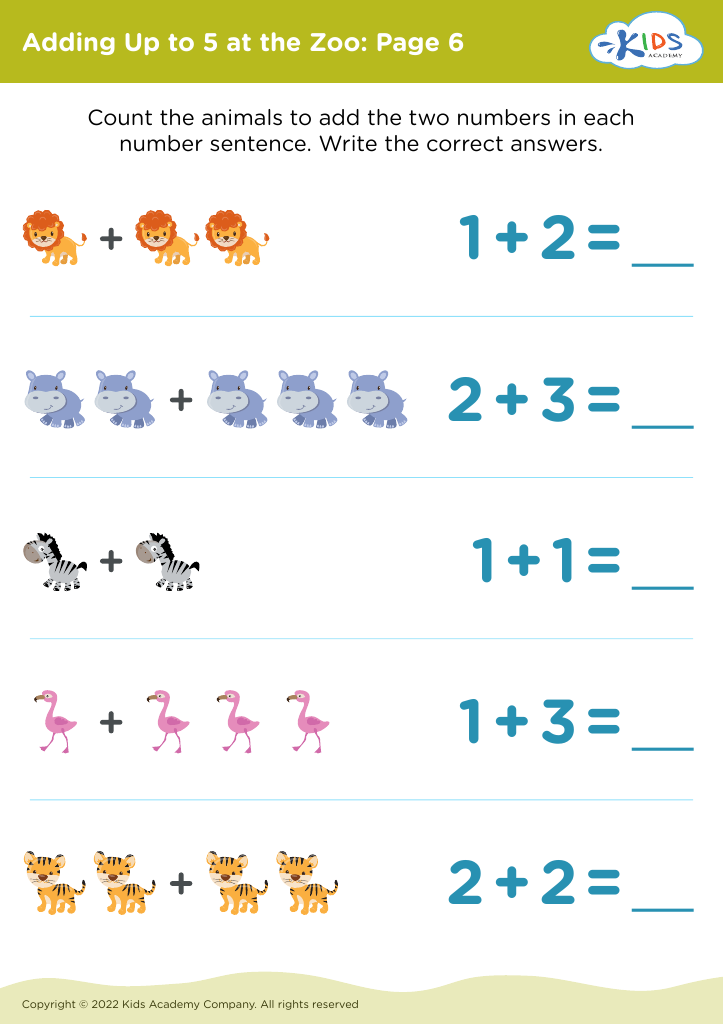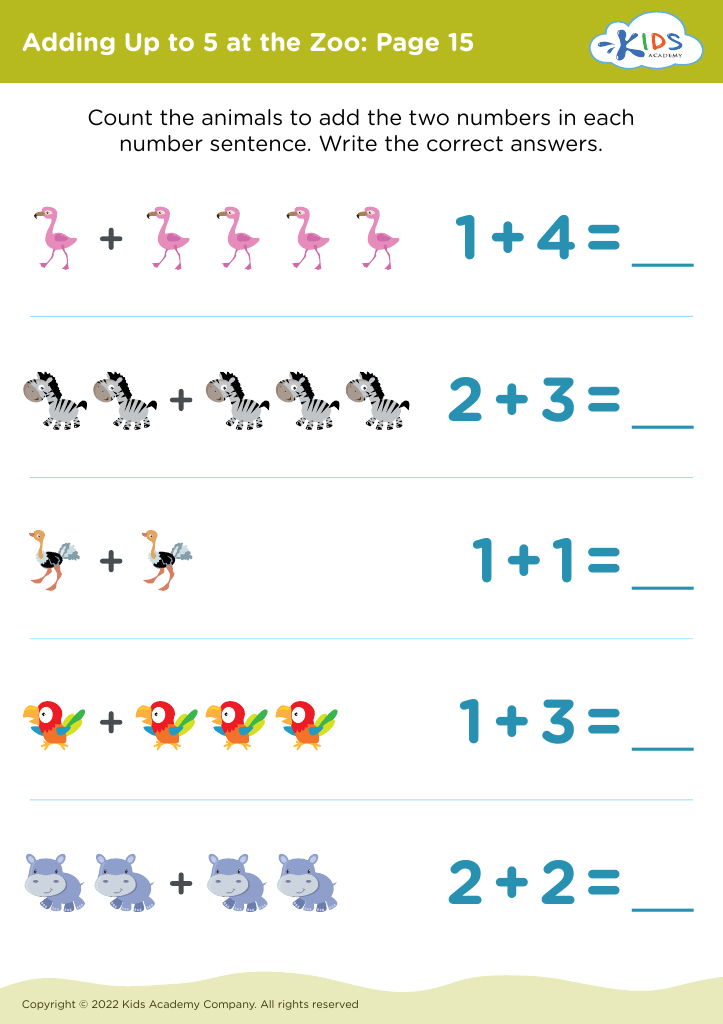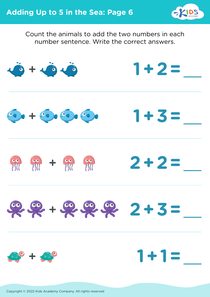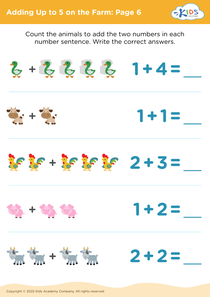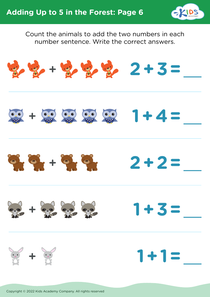Basic addition practice Adding at the Zoo Worksheets for Ages 3-7
3 filtered results
-
From - To
Discover the joy of early math with our "Adding at the Zoo" worksheets, designed especially for kids ages 3-7. These engaging, printable exercises help children practice basic addition in a fun zoo theme, fostering both math skills and a love for learning. With vibrant illustrations featuring their favorite animals, kids will be excited to count and add. Perfect for preschool and early elementary students, these worksheets support foundational math learning and are ideal for parents and teachers seeking interactive, educational activities. Boost your child's addition skills in a fun and captivating way with our "Adding at the Zoo" worksheets today!
Basic addition practice, like "Adding at the Zoo," is crucial for young children aged 3-7 because it lays the foundation for their future math skills and cognitive development. Early exposure to addition enhances numerical fluency, making it easier for children to grasp more complex math concepts later in school. At this age, children are highly receptive and their brains are developing rapidly, making it an ideal time to introduce basic mathematical ideas.
"Adding at the Zoo" taps into young children's natural curiosity and love for animals, making learning fun and engaging. This approach can help to reduce math anxiety and engender a positive attitude towards the subject. By associating numbers with animals and real-life scenarios, children can develop critical thinking and problem-solving skills in an enjoyable and meaningful way.
For parents and teachers, incorporating such playful educational content can also support a child's language development and social skills as they discuss and share what they’re learning. Furthermore, basic addition also reinforces counting skills, helps with recognizing numerical patterns, and establishes a sense of achievement.
In conclusion, using themed activities like "Adding at the Zoo" fosters an early love of learning, promotes cognitive and mathematical skills, and is instrumental in helping young children build a strong educational foundation.
